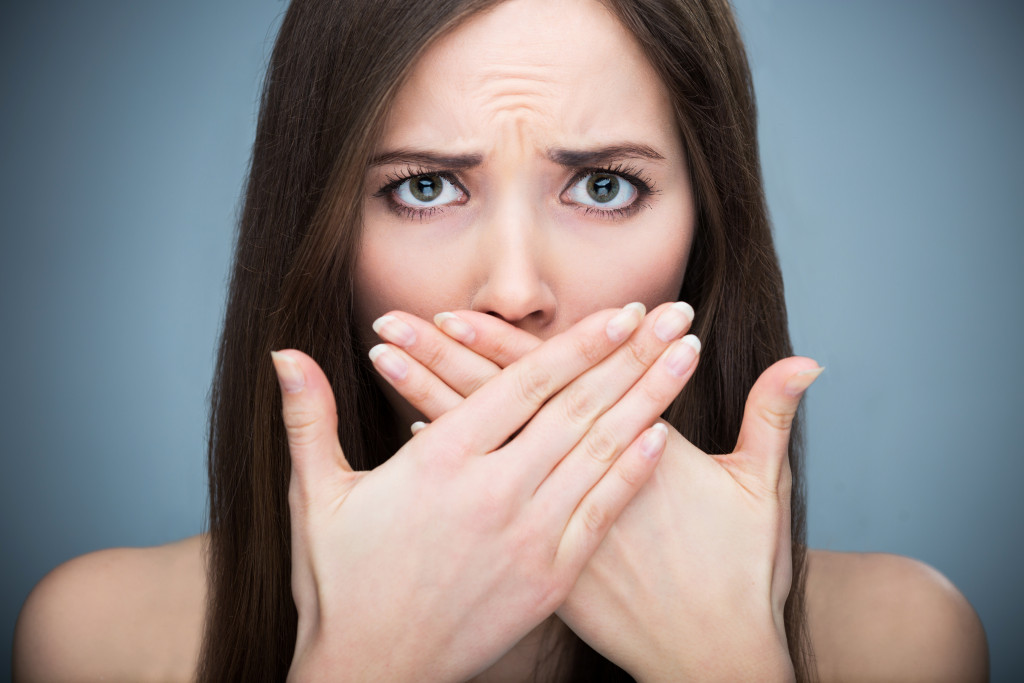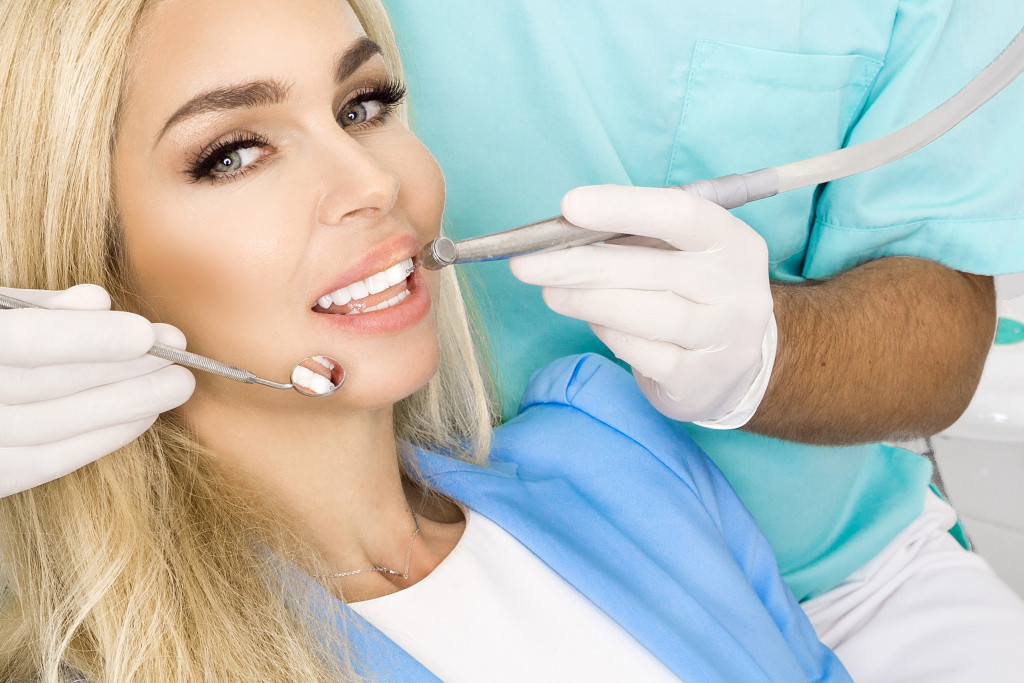- Visit your dentist regularly for checkups and cleanings to prevent any problems related to bad breath.
- You should practice good oral hygiene by brushing, flossing, and using mouthwash twice dail
- Change your lifestyle by avoiding strong-smelling foods and limiting or avoiding tobacco use.
- Drink plenty of water throughout the day to flush away food particles and bacteria.
Halitosis, or bad breath, is an embarrassing problem for many people. It can be caused by various intensity factors ranging from mild to severe. Fortunately, there are several steps you can take to reduce the effects of halitosis and get rid of it altogether.
By following these simple tips and techniques, you’ll soon have fresher breath that will make others more comfortable when they talk to you. This article will look at ways to identify the source of your bad breath and how to address it effectively so that you can live a life free from embarrassment due to halitosis.
Visit your dentist
Everyone wants a complete and beautiful smile as well as fresh breath. You need to visit your dentist for regular checkups and cleanings. Not only can the dentist help maintain the health of your mouth, teeth, and gums, but they can also help prevent painful issues such as gum disease or cavities. Additionally, if you’re dealing with bad breath caused by halitosis, they can identify what might be causing it and offer tips on improving the problem.
During these visits, your dental hygienist may also use tools to remove any buildup of plaque or tartar firmly attached to the surfaces of your teeth and gums. The accumulation of plaque can cause bad breath, so regularly removing this with an in-office dental cleaning will help keep your breath smelling fresh.
Practice good oral hygiene
Practicing good oral hygiene is essential when dealing with halitosis, also known as bad breath. Brushing your teeth twice a day for two minutes can help remove the bacteria that produce foul odors.
Flossing daily ensures that pieces of food stuck between the teeth and gums are cleaned out, resulting in an improved breath. Finally, mouthwash containing antibacterial ingredients can make all the difference in controlling halitosis.
Change your lifestyle
Avoid eating strong-smelling foods.
Eating strong-smelling foods like garlic and onions may contribute to halitosis due to their sulfur compounds being released in the body and expelled through breathing and sweat glands on the face. Although cooking recipes with these powerful ingredients is still an option, it would be best to avoid them if halitosis is your concern.
This is because then you wouldn’t have an accumulation of sulfur compounds in your body that could lead to unpleasant odors from your breath. Eating strong-smelling foods is not the only thing that causes bad breath; there are various causes that you should consider, such as poor oral hygiene habits, certain medical conditions, and tobacco products. Yet, reducing or avoiding any food that contains high amounts of sulfur compounds should help suppress halitosis if it’s one of the factors contributing to it.
Limit or avoid tobacco use
Smoking cigarettes and other tobacco products can have a disastrous impact on your oral health. In addition to yellowing teeth, it can also lead to dry mouth, which is one of the primary contributors to bad breath.
People may be familiar with halitosis affecting a person’s ability to make social connections. However, this issue has more severe consequences, like a weakened immune system due to decreased saliva production in the mouth.
Therefore, limiting or completely avoiding using tobacco products is essential for better oral health. Through personal responsibility and awareness, you can ensure that your breath and overall health remain in good standing.
Drink plenty of water
Many of us forget to prioritize hydration — but for those with bad breath, one of the most effective preventive measures is as easy as upping our water intake. Drinking plenty of water not only helps reduce a person’s risk of halitosis but also flushes away food particles and plaque in your mouth that can cause bacteria to accumulate, resulting in odors.
Hydrating throughout the day has been proven to help wash away much of this, and dry mouth, an environment that contributes to bad breath, can be lessened too. So stay hydrated: bring a water bottle wherever you go and sip it regularly during the day. Not only will it improve your breath, but it will keep you healthier overall!
Get enough restful sleep.
Sleep is essential to a healthy lifestyle, and getting enough restful sleep each night goes far beyond feeling rested. Without adequate sleep, our bodies become out of sync, resulting in numerous mental and physical health issues. Specifically, when it comes to bad breath, getting enough restful sleep every night can help maintain optimal saliva production levels, which helps rid bacteria that can cause halitosis.
It is essential to understand that lack of salivation can have adverse effects on the tongue, teeth, and gums as well, leading to oral health problems. So now that you know the importance of adequate sleep for your overall health, make sure you carve out some time each night to catch up on your zzzs!
These are just some of the tips you can use to get rid of halitosis. With a little bit of effort, your bad breath should be a thing of the past! If none of these techniques work for you or if you feel that bad breath is an ongoing problem, speak with your doctor or dentist about any medical issues that could be causing it.


